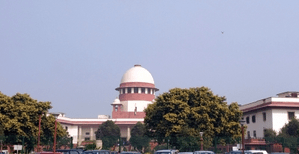The Supreme Court has declined to review its January 3 judgement, which dismissed calls for an SIT or CBI investigation into the short-seller Hindenburg’s January 2022 report. This report had significantly reduced the share value of Adani group companies and triggered a stock market downturn.
A bench comprising Chief Justice D Y Chandrachud, Justices J B Pardiwala and Manoj Misra had rejected several PILs on January 3, citing a lack of merit in their claims. The allegations suggested that market regulator Sebi had failed to investigate Hindenburg’s accusations of stock market manipulation by Adani group companies and called for a thorough investigation by the CBI or a special investigation team.
The court had directed central agencies to investigate Hindenburg’s role in causing financial losses to Indian investors.
PIL petitioner Anamika Jaiswal, represented by advocate Prashant Bhushan, filed a review petition in February, alleging significant errors in the judgement. The petition argued that the verdict overlooked Sebi’s lapses in investigating the Adani group and ignored inputs from the Directorate of Revenue Intelligence (DRI) on the group’s alleged misconduct.
Upon review, the bench reaffirmed that its original judgement had adequately addressed these allegations and dismissed the review petition. The order, passed on May 8 but recently uploaded on the SC website, stated, “Having perused the review petition, there is no error apparent on the face of the record. No case for review under the Supreme Court Rules 2013 (is made out). The review petition is, therefore, dismissed.”
In its January 3 order, the SC had dismissed as unauthentic a report by the Organised Crime and Corruption Reporting Project (OCCRP), which is linked to controversial billionaire George Soros. This report had been used by the media to support Hindenburg Research’s claims of stock manipulations by Adani group companies and Sebi’s failure to investigate the short seller’s allegations.
The court stated that the petitioners had based their arguments solely on inferences drawn from the OCCRP report, a third-party investigative organization. “The facts of this case do not warrant a transfer of investigation from Sebi. In an appropriate case, this court does have the power to transfer an investigation being carried out by the authorised agency to an SIT or CBI. Such power is exercised in extraordinary circumstances when the competent authority portrays a glaring, willful and deliberate inaction in carrying out the investigation. The threshold for the transfer of investigation has not been demonstrated to exist (in this case),” the bench had said.





